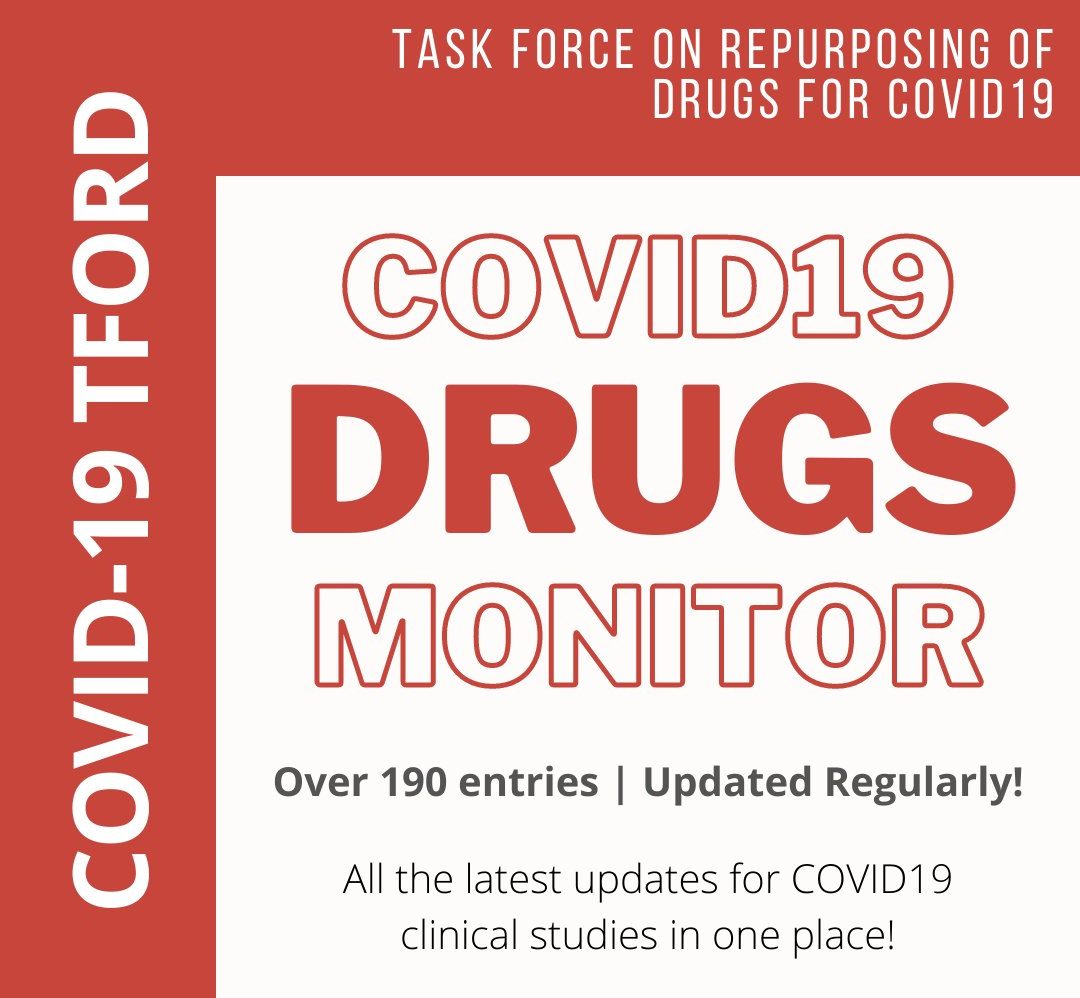(26 Mar 2021) TenofovirDF- may be an effective antiviral in the treatment of COVID-19
Tenofovir-DF versus Hydroxychloroquine in the Treatment of Hospitalized Patients with COVID-19: An Observational Study (TEDHICOV)
https://www.medrxiv.org/content/10.1101/2021.03.24.21252635v1
NCT04812496- 104 patients were included: 36 in the HCQ group and 68 in the TDF group. The unadjusted primary outcomes were: LOS (length of stay) 16.6 ± 12.1 for HCQ versus 12.2 ± 7.0 days for TDF (p = o.o102); need for admission to ICU / mechanical ventilation (MV): 61.1% for HCQ versus 11.8% for TDF (p = o.ooo); and mortality: 50.0% for HCQ and 8.8% for TDF (p = o.ooo). When the outcomes were adjusted for these baseline differences, in the multiple regression model for LOS, it was found that TDF decreased the hospital stay by 6.10 days (C.I.: −11.97 to −2.40, p = o.o42); In the logistic regression model for the need for ICU / MV, it was found that the use of TDF had an O.R. of 0.15 (C.I.: 0.03-0.76, p = o.o22); and for the Cox proportional hazards model for mortality, the H.R. was 0.16 for TDF (C.I.: 0.03-0.96, p = o.o41). In the estimation model of the treatment effects by regression adjustment, it was found that TDF decreased the stay by −6.38 days (C.I.: −12.34 to −0.42, p = o.o36); the need for ICU / MV at −41.74% (C.I.: −63.72 to −19.7, p = o.ooo); and mortality by −35.22% (C.I.: −56.47 to −13.96, p = o.oo1). TDF may be an effective antiviral in the treatment of COVID-19. Some of its advantages include: its wide availability, cost and oral presentation. Randomized clinical trials are imperatively required to confirm this possibility.
